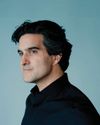
At 57, Jerusalem was let go from her chief people officer role in private equity. But she wasn't financially, or emotionally, ready to retire. After working for a few years as a business consultant in HR, she pivoted to launch Rocket50, a membership community and job search platform that assists older workers. To get her business off the ground, she had to quickly acquire a host of new skills-from integrating AI to creating marketing and social media strategies.
Jerusalem rejects the notion that older people don't want to learn new ways of doing things, and credits the demands of launching a business-gaining new skills and engaging with others-for boosting her confidence and mental resilience.
People often assume the mind does not work optimally with age. While there are some normal age-related declines in thinking speed and attention, people's decisionmaking and abstract reasoning skills may actually improve with age, according to research from the National Institute on Aging and the Columbia University Irving Medical Center (CUIMC).
It's good news, as employees age 55 and older are expected to constitute more than a quarter of the workforce over the next decade, and Americans are increasingly working past retirement age either because they want to stay engaged or because finances and caregiving duties make it impossible not to. Regardless of why they're working, they all have one thing in common: They want to stay mentally sharp. Fortunately, the brain is adaptable, and experts say some daily habits can help people maintain cognitive resilience well into older age.
THE BASICS
This story is from the June - July 2024 edition of Fortune US.
Start your 7-day Magzter GOLD free trial to access thousands of curated premium stories, and 9,000+ magazines and newspapers.
Already a subscriber ? Sign In
This story is from the June - July 2024 edition of Fortune US.
Start your 7-day Magzter GOLD free trial to access thousands of curated premium stories, and 9,000+ magazines and newspapers.
Already a subscriber? Sign In

THE NEW GOLD RUSH
Gold prices have soared amid global uncertainty and a central-bank-driven buying spree. But this time, the gold mining industry looks very different.

A New Season for Giving
As the PGA TOUR kicks off its 2025 season alongside its sponsors in Hawai'i, the organization is continuing to make an impact in local communities.

WELCOME TO ELONTOWN, USA
The small town of Bastrop, Texas (pop. 12,000), has become a home base for Elon Musk's business empire. What comes next is anyone's guess.

100 MOST POWERFUL PEOPLE
Our inaugural, authoritative ranking of the leaders whose innovation and impact have elevated them to the top of the business world.

ARE CEO SABBATICALS THE ULTIMATE POWER MOVE?
WHEN VENTURE capitalist Jeremy Liew and his wife were dating, they talked about how one day they would take a year to travel the world. \"That's how we'd know we'd made it,\" Liew says.

WHAT ARE THE BEST METRICS FOR MEASURING A STARTUP'S POTENTIAL?
IN HIS 2012 ESSAY \"Startup = Growth,\" Paul Graham talks about a 5% to 7% weekly growth rate as table stakes for startup success. If you're growing 10%, he says, you're doing \"exceptionally well.\"

TECH POLYMARKET'S ELECTION ACCURACY MADE SHAYNE COPLAN A STAR-BUT AN FBI RAID POINTS TO TROUBLE AHEAD
IN NOVEMBER, Shayne Coplan had a week he'll remember for the rest of his life: He got a phone call from the highest echelons at Mar-a-Lago. He went on TV for the first time. And his New York City apartment was raided by the FBI.

WHY BIG TECH IS THE NUCLEAR INDUSTRY'S NEW BEST FRIEND
OVER THE PAST several years, Big Tech firms like Google and Microsoft have trumpeted ambitious plans to go carbon-neutral, or even carbon-negative, by 2030. But then the generative-AI boom came along and threw a giant wrench in their plans.

WHAT PALMER LUCKEY, THE MAN REVOLUTIONIZING WARFARE, IS AFRAID OF
PALMER LUCKEY, the founder of the $14 billion Al-powered weapons startup Anduril, has become the face of change in the defense industry.

GLOBAL BUSINESS BRACES FOR TRUMP 2.0
AROUND THE WORLD in 2024, voters chose change: in South Africa, France, Britain, and Japan. But nowhere does the anti-incumbent trend matter more than in the United States.